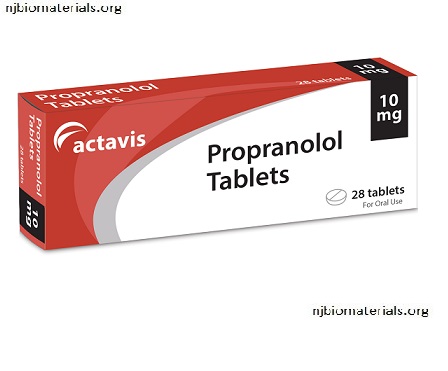Propranolol (Adrexan)
What is Propranolol
Propranolol, also known by the brand name Adrexan, is a beta-blocker medication primarily used to treat high blood pressure, irregular heartbeats, and other heart-related conditions. It is also effective for preventing migraines, managing symptoms of anxiety, and treating tremors.
Propranolol works by blocking beta-adrenergic receptors, which are responsible for the effects of adrenaline (epinephrine) in the body. By preventing adrenaline from binding to these receptors, Propranolol reduces heart rate, lowers blood pressure, and decreases the force of heart contractions. This makes it effective in treating conditions where the heart needs to work less vigorously. Additionally, Propranolol affects blood vessels, leading to a reduction in migraine frequency and severity, and it can help control physical symptoms of anxiety, such as shaking and sweating.
Recommendations
Propranolol is recommended for the treatment of various cardiovascular and other conditions. It is commonly prescribed in the following situations:
• Hypertension;
• Angina;
• Arrhythmias (irregular heartbeats);
• Migraine prevention;
• Essential tremor;
• Anxiety;
• Hypertrophic cardiomyopathy.
Propranolol is usually taken once or several times a day, depending on the condition being treated. It is important to follow your healthcare provider’s instructions regarding dosage and timing for safe and effective use.

Precautions and Contraindications
Before starting Propranolol, several health conditions should be considered, as they may affect the safety or efficacy of the medication. Propranolol may not be suitable for everyone:
• Asthma or chronic obstructive pulmonary disease (COPD);
• Heart block or severe bradycardia (slow heart rate);
• Diabetes;
• Heart failure;
• Liver or kidney disease;
• Depression.
Your healthcare provider will review your medical history to determine if Propranolol is a safe and appropriate treatment option for you.
Interactions
Propranolol can interact with other medications, potentially increasing the risk of side effects or reducing its effectiveness. It is important to inform your healthcare provider of all medications, supplements, and over-the-counter products you are taking. Common interactions include:
1. Other blood pressure medications;
2. Antidepressants (SSRIs, SNRIs, tricyclics);
3. Antiarrhythmic drugs;
4. NSAIDs (nonsteroidal anti-inflammatory drugs);
5. Insulin and Oral Diabetes Medications;
6. Alcohol.
Always provide your healthcare provider with a complete list of your current medications to prevent dangerous interactions and ensure the safe use of Propranolol.
Side Effects
Like all medications, Propranolol can cause side effects. While many side effects are mild, some may require medical attention. Common side effects include:
• Dizziness or lightheadedness;
• Fatigue or drowsiness;
• Cold hands and feet;
• Nausea or upset stomach;
• Sleep disturbances.
More serious side effects are less common but can include:
• Bradycardia (slow heart rate);
• Wheezing or shortness of breath;
• Severe hypotension (low blood pressure);
• Depression or mood changes;
• Allergic reactions.
If you experience any severe side effects, such as difficulty breathing, fainting, or severe chest pain, seek medical attention immediately.
Before You Start Propranolol Treatment
Before starting Propranolol, your healthcare provider will evaluate your medical history and current health status. This may include:
• Cardiovascular examination;
• Respiratory assessment;
• Blood sugar monitoring;
• Detailed medication review;
• Monitoring plan.
It is crucial to take Propranolol exactly as prescribed, and do not stop taking it suddenly without consulting your healthcare provider, as this can lead to a sudden spike in blood pressure or other complications.
Overdose
An overdose of Propranolol can be serious and may require immediate medical attention. Symptoms of an overdose include:
• Severe dizziness or fainting;
• Extremely slow heart rate;
• Difficulty breathing;
• Confusion or loss of consciousness;
• Seizures.
If you suspect an overdose, seek emergency medical help immediately. Overdosing on Propranolol can lead to life-threatening complications, including cardiac arrest and respiratory failure.